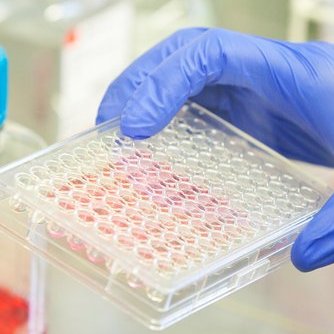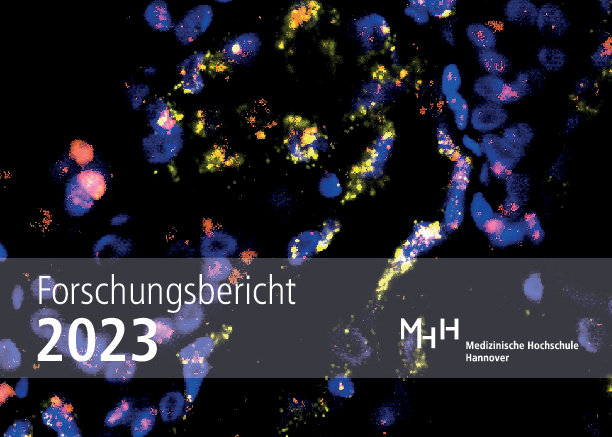Die Klinik für Nieren- und Hochdruckerkrankungen ist spezialisiert auf die Diagnose und Behandlung von nephrologischen und hypertensiologischen Erkrankungen. Die Forschungsaktivitäten der Klinik erfolgen innerhalb mehrerer eigenständiger wissenschaftlicher Arbeitsgruppen, eingebettet in nationale und internationalen Forschungskonsortien sowie in enger Zusammenarbeit mit Kooperationspartnern an der Medizinischen Hochschule Hannover und den Partnerinstitutionen. Das Forschungsprofil der Klinik setzt inhaltliche Schwerpunkte im Bereich der Nierentransplantation und den Nierenschädigungsmechanismen, bei angeborenen und immunologischen Nierenerkrankungen sowie im Bereich von Bluthochdruck- und Gefäßerkrankungen. Wir richten ein Hauptaugenmerk darauf, unter Kombination von klinischen Studien, Modellsystemen und molekularer Präzisionsmedizin klinisch relevante Erkenntnisse für die Diagnostik und Therapie unserer Patientinnen und Patienten zu erzielen.

Infos zu Forschungsstellen und Doktorarbeiten (Dr. med., PhD) finden Sie bei den Forschungsgruppen!

Infos zu Forschungsstellen und Doktorarbeiten (Dr. med., PhD) finden Sie bei den Forschungsgruppen!
Publikationen
Publikationen aus der Klinik für Nieren- und Hochdruckerkrankungen
Klinische Studien
Klinisches Studienzentrum
in der Klinik für Nieren- und Hochdruckerkrankungen
Unsere Forschungsgruppen
AG PD. Dr. med. Christos Chatzikyrkou AG Prof. Dr. med. Wilfried Gwinner/Dr. med. Robert Greite
Akute und chronische Schädigung von Nieren und Nierentransplantaten
AG Prof. Dr. Michael HaaseKlinische und epidemiologische Ansätze in der Akutnephrologie
AG Prof. Dr. med. Hermann HallerEndothelial Cell Function and Vascularization in the Kidney; Molecular mechanisms of Peritoneal Dialysis
AG Univ.-Prof. Dr. med. Christian HinzeSystemmedizinische Ansätze bei Nierenerkrankungen und Transplantation
AG Prof. Dr. med Florian LimbourgW2 Professur für Experimentelle Gefäßmedizin
AG Dr. med. Svjetlana LovricMolekulare Grundlagen seltener und genetischer Nierenerkrankungen
AG PD Dr. med. Heiko SchenkEntwicklung von Zebrafisch-Modellen für Nierenregeneration und glomeruläre Erkrankungen
AG Prof. Dr. med. Bernhard SchmidtKlinische Epidemiologie in der Nephrologie
AG Dr. med Julius J. SchmidtNephrologische Intensivmedizin
AG Prof. Dr. med. Kai Schmidt-OttMolekulare Mechanismen von Erkrankungen der Niere und des Nierentransplantats
AG Prof. Dr. med. Roland SchmittNierenalterung und -Regeneration
AG Prof'in Dr. med. Annette WagnerDigitalisierung in der Medizin - künstliche Intelligenz bei der Diagnose seltener Erkrankungen
AG Translationale IntensivmedizinMolecular mechanisms regulating endothelial barrier function in response to inflammation

